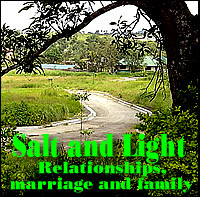Quickie marriages solemnized in some city halls by so-called “ministers” either make use of (a) pre-dated marriage licenses obtained from friendly contacts inside the office of the Local Civil Registrar; or (b) an affidavit of marital cohabitation under Article 34 of the Family Code. The article states:
No license shall be necessary for the marriage of a man and a woman who have lived together as husband and wife for at least five years and without any legal impediment to marry each other. The contracting parties shall state the foregoing facts in an affidavit before any person authorized by law to administer oaths. The solemnizing officer shall also state under oath that he ascertained the qualifications of the contracting parties and found no legal impediment to the marriage.Our senators and members of Congress should consider repealing Article 34 of the Family Code for several reasons:
1. The commission that drafted the Family Code in the late 1980s wanted to delete this provision on ratification of marital cohabitation (Article 76 of the New Civil Code) because it had been abused so much. Even today, mass weddings conducted by mayors use Article 34.
2. Embassies like that of the US, Canada, Australia, etc. are reportedly requiring applicants for immigration to prove that they have complied with the requirements of Article 34. These embassies are asking for proof that indeed the parties that they had indeed cohabited as husband and wife for five consecutive years before the marriage. If such proofs cannot be submitted, the application for immigration is reportedly denied.
My personal view: A man or woman below 23 years of age cannot avail of Article 34
I was told that some legal counsels of towns or cities have advised Local Civil Registrars that a man or woman aged 18 can make use of Article 34. This would mean that the cohabitation began when the man and woman were just 13 years old! (The term “boy and girl” is really the more appropriate term to use.)
Allowing an 18 year old to use Article 34 is contrary to the Supreme Court decision in the 2000 case of Niñal vs. Bayadog, as cited in the 2008 Dayot case. (In fairness, both the Niñal and Dayot cases involved the New Civil Code, not the Family Code; I believe, however, that they are still good law.) Based on this decision, my personal view is that only men and women who are at least 23 years old can avail of Article 34. The Court said:
The five-year common-law cohabitation period, which is counted back from the date of celebration of marriage, should be a period of legal union had it not been for the absence of the marriage. This 5-year period should be the years immediately before the day of the marriage and it should be a period of cohabitation characterized by exclusivity - meaning no third party was involved at any time within the 5 years and continuity - that is unbroken. Otherwise, if that continuous 5-year cohabitation is computed without any distinction as to whether the parties were capacitated to marry each other during the entire five years, then the law would be sanctioning immorality and encouraging parties to have common law relationships and placing them on the same footing with those who lived faithfully with their spouse. Marriage being a special relationship must be respected as such and its requirements must be strictly observed. The presumption that a man and a woman deporting themselves as husband and wife is based on the approximation of the requirements of the law. The parties should not be afforded any excuse to not comply with every single requirement and later use the same missing element as a pre-conceived escape ground to nullify their marriage. There should be no exemption from securing a marriage license unless the circumstances clearly fall within the ambit of the exception. It should be noted that a license is required in order to notify the public that two persons are about to be united in matrimony and that anyone who is aware or has knowledge of any impediment to the union of the two shall make it known to the local civil registrar.Persons below 23 years of age cannot avail of Article 34 of the Family Code. This is because if they are below 23, it means that the cohabitation began when they were below 18. Under Article 35 of the Family Code, no one can get married below the age of 18. As the Supreme Court observed in the Niñal vs. Bayadog case, “The exclusive five-year common-law cohabitation period, which is counted back from the date of celebration of marriage, should be a period of legal union had it not been for the absence of the marriage.”
How the Family Code Commission made Article 34 worse
As I pointed out above, the Commission that drafted the Family Code wanted to repeal Article 76 of the New Civil Code (the provision on ratification of marital cohabitation). But the Commission retained the provision as Article 34 of the Family Code on the ground that it had become traditional and that one of its purposes is the legitimation of children.
The Family Code Commission, however, made the provision on marital cohabitation worse. The commission said that the requirement of “without any legal impediment to marry each other” must be present at the time of the marriage and that the requirement need not be present during the five year period of cohabitation. For example, a married man has abandoned his wife and is living in with his mistress for the last five years. The wife dies; can the man now marry the mistress by using Article 34? Based on the Commission's interpretation, the legal impediment (the man's valid marriage) is no longer existing and so the man can now marry the mistress on the basis of their five year cohabitation.
If the affidavit of marital cohabitation is false, the marriage is void
The Supreme Court ruled in the Dayot case that the falsity of an affidavit of marital cohabitation effectively renders the marriage void ab initio for lack of a marriage license. Two things need to be pointed out:
1. The parties cannot take the law into their own hands and declare by themselves that the marriage is void. Under Article 40 of the Family Code they must file a petition to have the marriage declared void because of the falsity of the affidavit of marital cohabitation.
2. The parties who committed the falsification will be criminally liable. Judge Alicia V. Sempio-Diy, a member of the Commission that crafted the Family Code, wrote that “If the parties falsify their affidavit in order to have an instant marriage, although the truth is that they have not been cohabiting for five years, their marriage will be void for lack of a marriage license, and they will also be criminally liable.” (A Handbook on the Family Code of the Philippines, 1995 Ed., p. 38)







